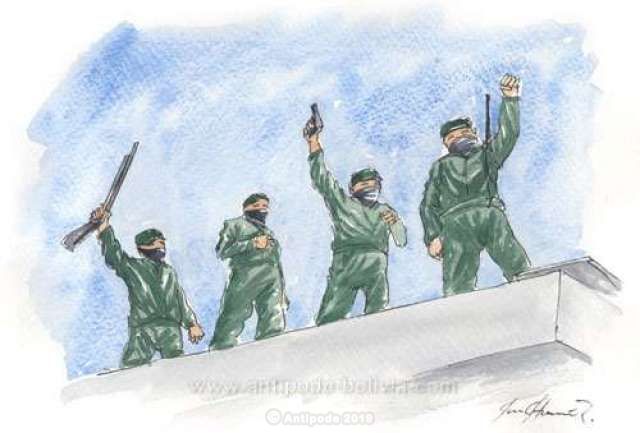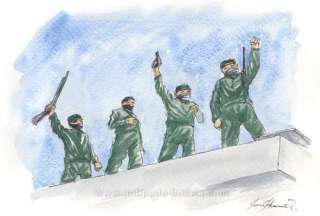

History of Bolivia: Wars and overthrow of the 20th century.
A series of wars for territories follows.
The country loses its access to the sea and areas that were rich
in copper and nitrates during the war called the Pacific War against Chile between
1879 and 1884. Part of Amazon, rich in rubber, is annexed by force by Brazil in
1903.
The Chaco’s War against Paraguay blows in 1932 and Bolivia loses
oil fields and an entire part of its male youth.
Bloodless, the country tries to get economically well during all
this period and decides to open itself to overseas investors. Its economic
history is cadenced by the evolution of ore prices, especially tin, nicknamed
“Metal of Devil”. Regular Indian rebellions lead to the assumption of power of
military governments.
In 1952, the Bolivian Revolution starts. The minors’ and
industrial workers’ upheaval reverses the government, mines are nationalized,
education is declared free and suffrage is universal.
In 1953, farmers hold the lands and an agricultural reform
starts. But the Revolutionary Nationalist Movement (RDM), a ruling party during
12 years after those revolutions, becomes more and more authoritarian, and
social troubles accrue.
Power falls in the hands of the army in 1964. Overthrows take
turns. In 1967, Ernesto Che Guevara enters illegally in Bolivia and creates the
National Liberation Army (NLA), but his efforts to contact the local population
are in vain, so much the people is muzzled by the military dictatorship. He is
quickly betrayed by the Bolivian communist party, captured and executed in
October 1967.
This is a very complicated period for Bolivia, between military
dictatorships, rigged elections, massive violation of Human rights, unchecked
inflation, corruption above all kind of limit and drug trafficker in
government….
Democracy starts very shyly in 1982, under international
pressure and population’s pressure who didn’t have nothing more to lose.
But this democratic breakthrough arrives during the economic
crisis that drowns all the Latin American continent (next to the Mexican
crisis), with tax adjustment plans and privatizations that lead to important
dismissals, 30 000 minors are unemployed over a night. Inflation
reaches 23 000 % in 1985, recession is serious.
Thanks to the drug economy, the country will keep its head out
of water. The neoliberal model that is proposed in order to save Bolivia comes
to be a bitter failure.



